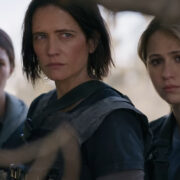CHILD 44: Unworthy To Be Mentioned In The Same Breath As The Novel
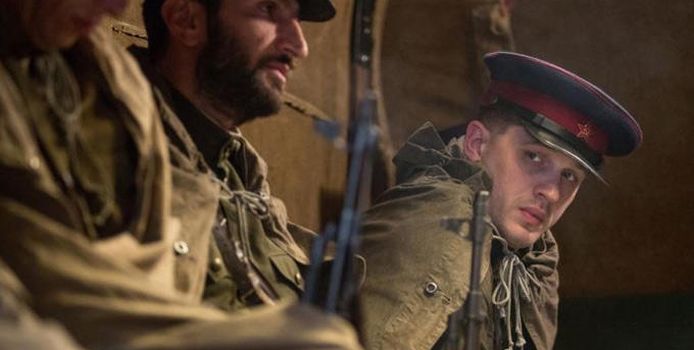
Alistair is a 25 year old writer based in Cambridge.…
Even though I may make it look like any idiot can do it, writing reviews is far from easy. The hardest things to review aren’t the plot-heavy science fiction movies or the obscure art house efforts with impenetrable plots like you would imagine – the most difficult movies to review are the films that are just plain boring.
I watched Child 44 two days ago, where I made up 100% of the audience for that screening – in the two days since, I have found myself struggling to remember quite a lot of it. It’s surprising that anybody can make a movie this uninteresting out of source material so gripping and exciting, in this case Tom Rob Smith’s 2008 novel, the first in a series of books about Leo Demidov. Having only read the first book in that series, I felt that a cinematic version would be caught somewhere between the cold-war paranoia of The Lives of Others and the violent pulp of a David Fincher movie.
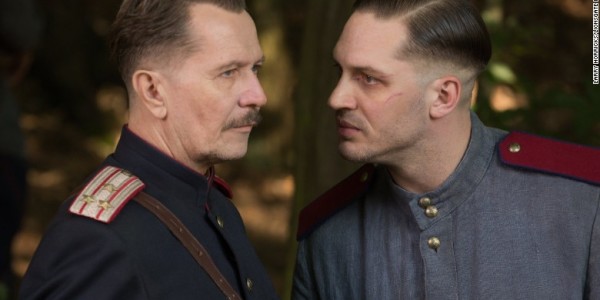
Alas, any excitement that can be found on the page hasn’t translated onto the screen; if Tom Hardy was hoping to take the lead role in a franchise based on Tom Rob Smith’s source novels, he should probably start looking for other work to fill his schedule.
The movie ignores the themes that make the novel distinctive
The year is 1953 and Russia is still under Stalin’s rule. Leo Demidov is a national hero, due to a piece of Russian propaganda in the Second World War that made national headlines. Now working for the Ministry of State Security, he uncovers what appears to be a child murder, which gets covered up by the state as there “is no murder in paradise”. After failing to denounce his wife (Noomi Rapace) as a spy, they both get exiled to Southern Russia where the child murders follow him and he has to speak out and find the killer, something that isn’t exactly easy to do under communist rule.
With a few exceptions, I don’t tend to read books that movies are based on, knowing that I will inevitably compare them both and refuse to let them stand as separate works of art based on the same source. With Child 44, it becomes infuriating as the themes that made the book distinctive in its genre, notably the still relevant topic of the treatment of gay people in Russia, have been effectively brushed aside in the big screen adaptation.
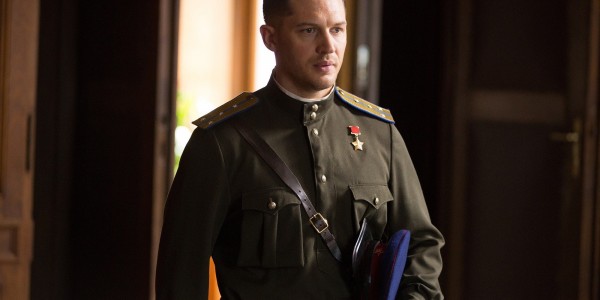
That theme appears for less than five minutes in the film and is treated with an annoying ambivalence; you could argue that director Daniel Espinosa (who is responsible for the equally boring 2012 thriller Safe House) wasn’t trying to manipulate the audience emotionally by showing the true extent of the persecution of gay men. However, it feels more like it was addressed in a way to make it acceptable to the Russian censors – the fact the movie has been swiftly banned in the majority of Eastern bloc countries just makes the movie’s reluctance to draw parallels with the awful socio-political situations of then and now even more aggravating.
The actors shouldn’t be embarrassed by their performances, but they should be looking for better roles
The book played at times like a pulpy thriller – in the “about the author” blurb I remember reading that Tom Rob Smith was influenced by 24 and wanted to make the book version of a TV boxset that you can’t stop watching after one episode. Yet the surreal hyper violent prose has been toned down in order to make that most boring of genres (one that I sound like a broken record for criticising time and time again): the prestige picture.
Yet even with a handful of the greatest actors working today on board (Gary Oldman, Paddy Considine, Joel Kinnaman and Vincent Cassel all have supporting roles), the performances don’t become anything more than “fine”. I can’t criticise any of the performances, even if I do have a pet hate for films set in foreign territories where the characters speak in English with foreign accents, as none of them put a foot wrong (although Paddy Considine’s character is most affected by the poor script). If all the characters spoke in their normal accents I wouldn’t have a problem, but the Russian accents just make me think, “why aren’t they speaking in Russian?” There is no problem with the accents themselves, with Hardy managing to effectively pull off a Russian accent – he is far better at the Russian accent than the Welsh one he attempted to in Locke, which completely ruined that movie for me.
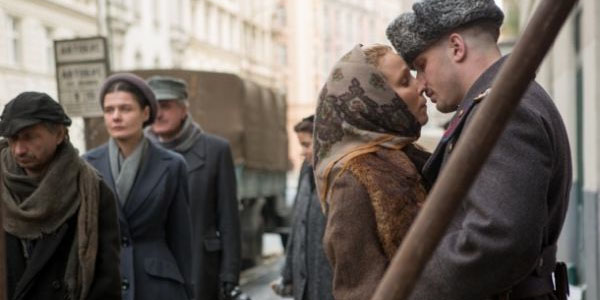
The movie has a gloomy visual style that suits the material, but has nothing that makes it even remotely distinctive. The only visual traits I can remember are the opening credits appearing in Russian (which was pointless as everybody was speaking English anyway) and random shots of steam trains every five minutes. If you were to play a drinking game based on this movie (which I wouldn’t recommend, as it is more than a tiny bit depressing), I would suggest downing a drink every time a shot of a steam train appears onscreen. It’s a lazy visual motif that outstays its welcome and becomes grating to the point I started believing the Russian rail industry were responsible for some of the movie’s funding.
Verdict
Child 44 is bland in every aspect, which is a shame as the source novel could have been turned into an exciting movie if it had the right directorial hands to guide it (as well as a more eye catching title, Child 44 sounds pretty boring in name alone). None of the actors come out of the movie unscathed, but it does leave me longing to see them giving better performances in better movies. Director Daniel Espinosa has seemed to have made a name for himself by directing boring thrillers – as much as I try to keep an open mind when it comes to movies, this soulless, crushing bore of a movie has placed him directly onto my director blacklist.
Have you seen Child 44? How do you think it compares to the book?
Child 44 is out now in the UK and US. All international release dates can be found here.
(top image source: Lionsgate)
Does content like this matter to you?
Become a Member and support film journalism. Unlock access to all of Film Inquiry`s great articles. Join a community of like-minded readers who are passionate about cinema - get access to our private members Network, give back to independent filmmakers, and more.
Alistair is a 25 year old writer based in Cambridge. He has been writing about film since the start of 2014, and in addition to Film Inquiry, regularly contributes to Gay Essential and The Digital Fix, with additional bylines in Film Stories, the BFI and Vague Visages. Because of his work for Film Inquiry, he is a recognised member of GALECA, the Gay & Lesbian Entertainment Critics' Association.







